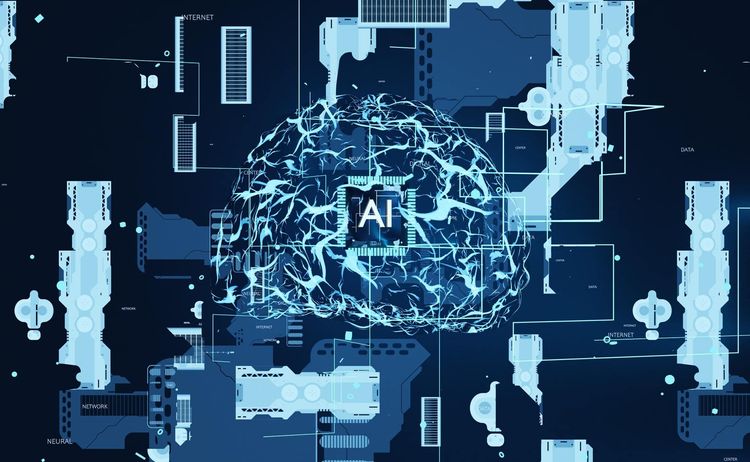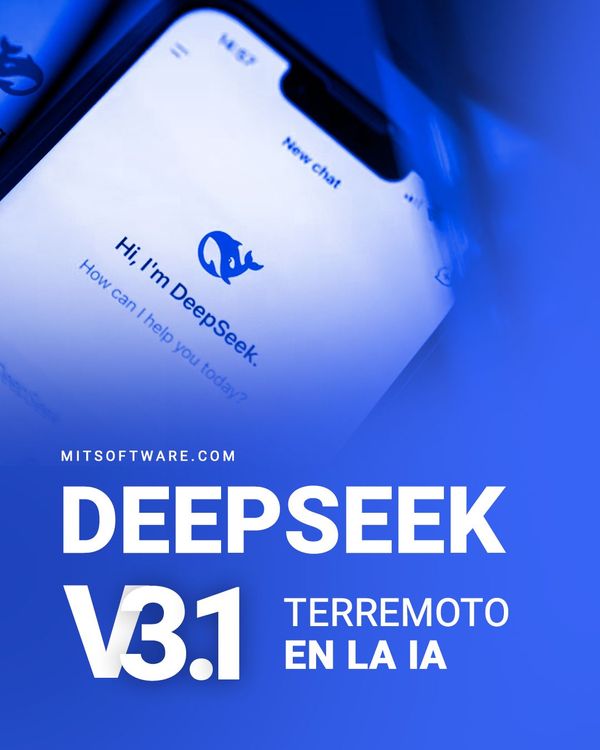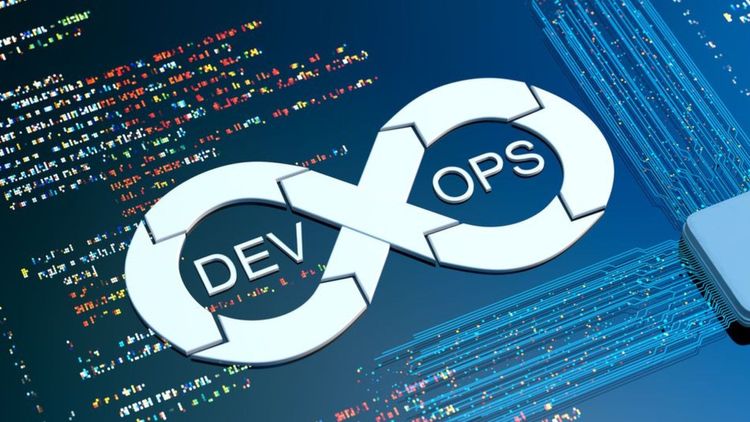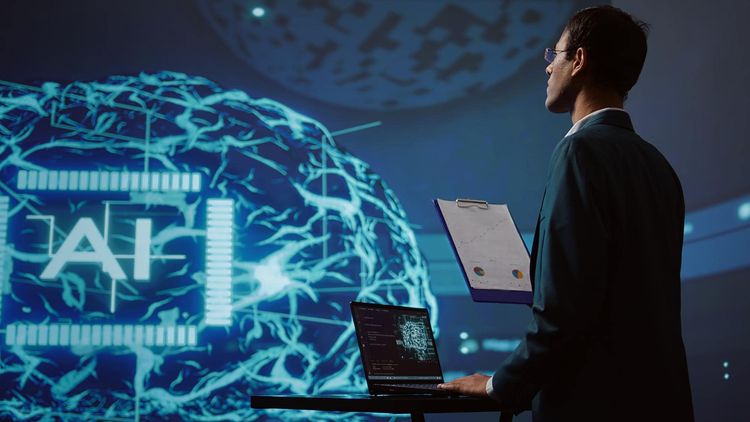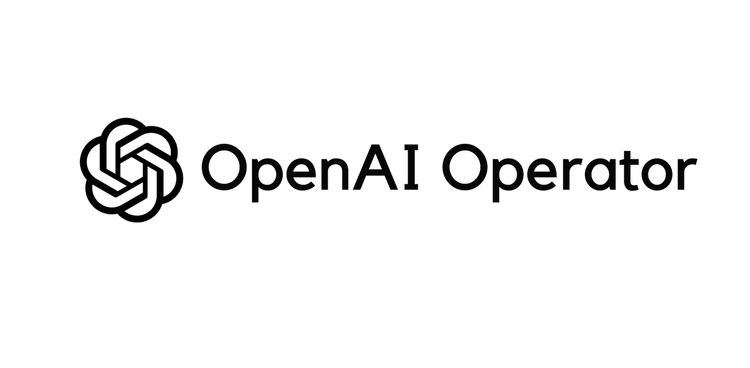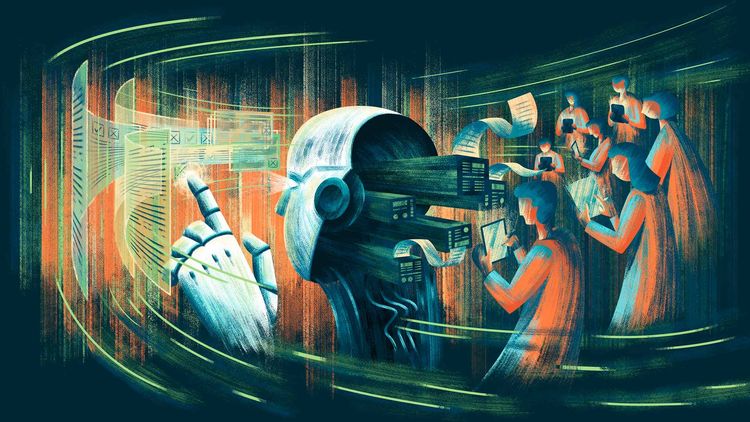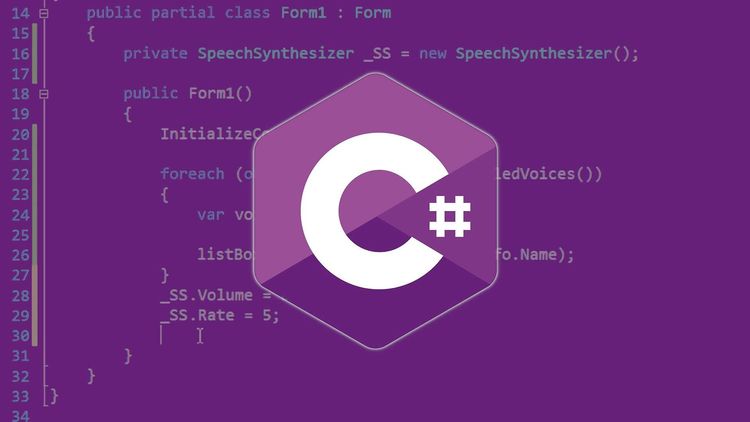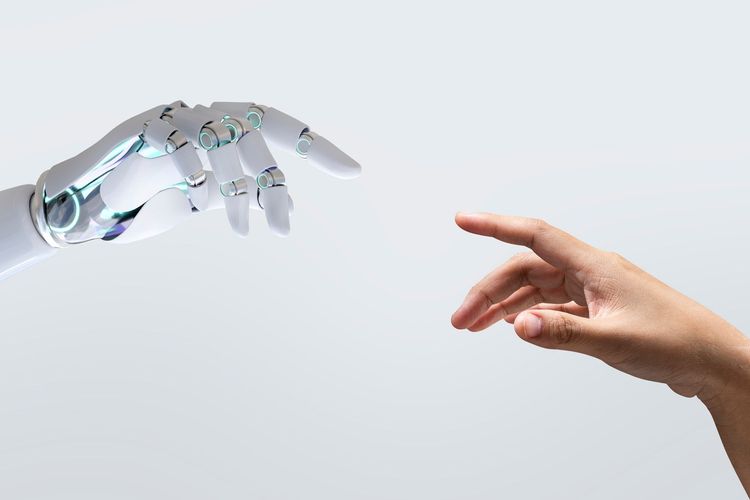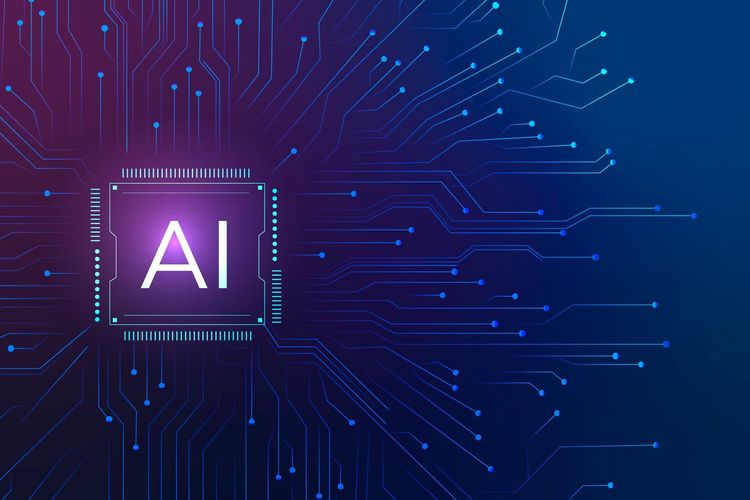Until just a few months ago, the scope of what we know today as artificial intelligence seemed to be just an element belonging to the science fiction genre. However, the amazing advances and innovations that this technology brings have broken down barriers and boundaries, turning what was once considered impossible into a tangible reality. Artificial intelligence has burst onto the technological scene with overwhelming force, transforming entire sectors and opening a world of unimaginable possibilities, with software development being one of the most involved. Thanks to this new feature, a new horizon of possibilities came into view, as a form of innovation that allows companies to remain at the forefront of the latest advances From the automation of repetitive tasks to the creation of capable autonomous systems To learn and adapt, AI is redefining the way we conceive and build software.
The integration of artificial intelligence into software development has unleashed a torrent of previously unimaginable possibilities and opportunities. The ability of machines to analyze data at an unprecedented scale has given rise to deep and insightful insights, paving the way for more informed and agile decision-making. Next, we will review the implications and opportunities that artificial intelligence has created for the world of software development.
Artificial Intelligence (AI) and Software Development: Implications and opportunities
The synergy between artificial intelligence (AI) and software development is undoubtedly one of the greatest technological revolutions of our time. This alliance not only powers existing operations, but also creates a vibrant technology landscape full of opportunities that fundamentally transform the way we think about and use software in all its forms.
On the other hand, artificial intelligence has also introduced unique challenges in software development. The complexity of machine learning algorithms and the need for high-quality data pose significant technical and logistical challenges. Furthermore, ethics and responsibility in the design and implementation of AI systems are critical issues that must be addressed comprehensively. Despite these challenges, the potential of artificial intelligence in software development is undeniable. Companies that adopt and leverage this technology have the opportunity to differentiate themselves in an increasingly competitive market, offering innovative products and services that improve people's lives and transform entire industries.
On the other hand, artificial intelligence has also introduced unique challenges in software development. The complexity of machine learning algorithms and the need for high-quality data pose significant technical and logistical challenges. Furthermore, ethics and responsibility in the design and implementation of AI systems are critical issues that must be addressed comprehensively. Despite these challenges, the potential of artificial intelligence in software development is undeniable. Companies that adopt and leverage this technology have the opportunity to differentiate themselves in an increasingly competitive market, offering innovative products and services that improve people's lives and transform entire industries.
-Development of Adaptive Applications: Artificial intelligence (AI) has proven to be a powerful tool in the development of adaptive applications that can dynamically adjust to the individual preferences and needs of each user. This real-time customization capability opens up a world of possibilities in terms of improving the user experience and strengthening the relationship between companies and their customers.
In this way, the ability of applications to adapt to individual user preferences allows for a more fluid and personalized experience. For example, AI algorithms can analyze user behavior, interaction patterns, and historical preferences to offer relevant recommendations and suggestions at the right time.
This not only improves the user experience, but also increases the likelihood that users will engage more with the app and convert. Another important aspect is how AI can help companies collect and use data more effectively. By analyzing large volumes of data generated by user interaction with the application, AI can identify trends, patterns and opportunities that might otherwise go unnoticed.
-Business Process Automation: AI algorithms can automate a wide range of business processes, from inventory management to customer service, allowing organizations to be more efficient and competitive in a globalized and constantly changing market. change.
One of the areas where artificial intelligence is having a significant impact is supply chain optimization. AI algorithms can analyze large volumes of data to predict product demand, identify purchasing patterns, and optimize inventory management. Additionally, artificial intelligence is transforming the way companies interact with their customers. AI systems can analyze customer data in real time, identify behavioral trends and individual preferences, and personalize customer experiences based on this information.
-Predictive Analytics: Artificial intelligence, with its ability to analyze large volumes of data quickly and efficiently, has revolutionized the way companies operate in today's business environment. By identifying patterns and trends that would otherwise go unnoticed, AI provides companies with valuable information for making informed decisions.
This advanced data analysis not only allows companies to better understand their competitive environment, but also helps them anticipate changes in the market. By being equipped with accurate and timely information, companies can adapt nimbly to new conditions and capitalize on emerging opportunities, allowing them to remain relevant and competitive in an increasingly complex and dynamic business environment.
-**Improving Security and Cybersecurity: **The transformation driven by artificial intelligence in the field of security and cybersecurity is a large-scale phenomenon that is revolutionizing the way we protect our systems and data in development of software. AI systems have proven to be powerful tools in detecting and preventing cyber attacks, as well as fortifying computer network defenses against increasingly sophisticated and persistent threats.
Artificial intelligence systems use advanced machine learning algorithms to detect patterns and anomalies that could indicate the presence of a cyber attack. These algorithms can identify malicious behavior, such as intrusion attempts, malware, or anomalous network activity, and take preventive measures to mitigate the impact of the attack. In addition to detecting known threats, AI systems can also identify suspicious patterns of behavior that could indicate the presence of malicious activity. These patterns may include unauthorized access to systems or files, unusual data transfers, or unexpected changes in network traffic.
It is clear that the alliance between artificial intelligence and software development is radically transforming the way we interact with technology and the world around us. This powerful combination of innovation and empowerment offers endless opportunities to drive development. human progress, improve efficiency and quality of life, and address some of the most pressing challenges we face as a society. For companies, Artificial Intelligence is only in its first steps, waiting for the future to bring a new path towards automatic and intelligent innovation.


